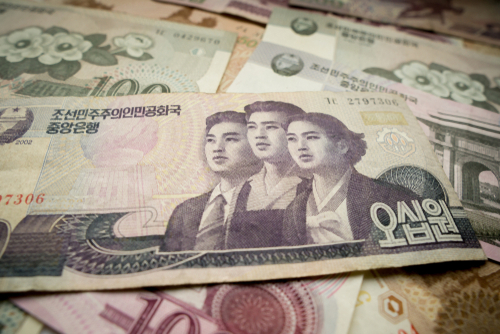When discussing global currencies, few are as intriguing and complex as the North Korean won. It provides fascinating insight into North Korea’s economy, its socio-political landscape, and its interaction (or lack thereof) with the global market. Whether you’re an economist, a curious observer of international finance, or planning a transaction involving North Korea, understanding the nuances of the North Korean won is essential.
Introduction to the North Korean Won
The North Korean won (₩ or KPW) is the official currency of the Democratic People’s Republic of Korea (North Korea). Like most currencies, the won is used for domestic transactions, but its usage internationally is extremely limited. Its value and functionality are tightly regulated by the North Korean government, as the country prioritizes economic self-reliance, often described as “juche”.
Key Features of the North Korean Won
Exchange Rates and Foreign Transactions
The exchange rate for the North Korean won can vary significantly, depending on whether you’re looking at the official government rate or the informal black-market rate. For visitors, financial transactions are strictly monitored, and most prefer using foreign currencies such as the U.S. dollar, Chinese yuan, or euro during their stay.
For a general understanding of how international money transfers work, refer to this guide on how money transfer rates are set.
Currency Denominations and Usage
The North Korean won primarily exists in banknotes, with denominations ranging from ₩5 to ₩5,000. Coins are also issued but are rarely seen in circulation. Due to strict government controls, the won is generally used only by North Korean citizens within the country, with foreign visitors primarily relying on approved currencies.
While foreign visitors have limited interaction with the won, this currency encapsulates the essence of an economy largely isolated from the external world.
How the North Korean Won Reflects the Economy
Economic sanctions and limited international trade significantly impact the stability and functionality of the North Korean won. Instances of hyperinflation have occasionally occurred, sometimes leading to revaluation measures by the government. These interventions have historically caused disruptions for individuals and businesses within the country.
Currencies, like the won, fluctuate due to various economic factors. Learn about the broader forces influencing currency values with this guide to currency fluctuations.
Global Perspective on the North Korean Won
Challenges in Exchanging the Won
For individuals or businesses looking to exchange North Korean won, options are highly restricted. Most banks and financial services do not deal with the currency due to economic sanctions and risks of non-compliance with international regulations.
When considering safe currency exchange options for other international transfers, explore where to exchange currency efficiently.
Comparisons to the South Korean Won
Often confused with its southern counterpart, the South Korean won (KRW), the North Korean won operates under entirely different circumstances. While the South Korean won is a widely traded and stable currency, its northern equivalent remains heavily controlled and largely inaccessible to global markets.
For a deeper insight into the uniqueness of North Korea’s currency compared to others, check out facts on the South Korean won.
Is the North Korean Won Becoming More Accessible?
Over the years, no significant measures have been taken to increase the accessibility or transparency of the North Korean won on the international stage. However, ongoing dialogue about the global economy and shifts in international relations might someday influence its future role in foreign exchange.
If this topic sparks an interest in exploring unique currencies globally, take a look at this fun roundup of beautiful world currencies.
FAQs
Can I exchange North Korean won outside North Korea?
No, the North Korean won is not freely traded on international markets. It is strictly a domestic currency, and foreign visitors typically transact using approved foreign currencies like the U.S. dollar, Chinese yuan, or euro.
Why is the North Korean won so tightly controlled?
The North Korean government heavily monitors its economy to maintain self-reliance and reduce the risk of external financial influences. Currency controls are a key part of this strategy.
What is the difference between the official and black-market exchange rates?
The official exchange rate is regulated by the government, often set at an unrealistic value for political or economic optics. The black-market rate is more reflective of the actual purchasing power within the country but is technically illegal.
Is the North Korean won stable?
The won has faced periods of instability, primarily caused by hyperinflation and government revaluations. These issues are closely tied to the country’s economic conditions and sanctions.
